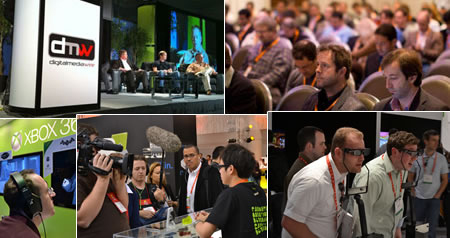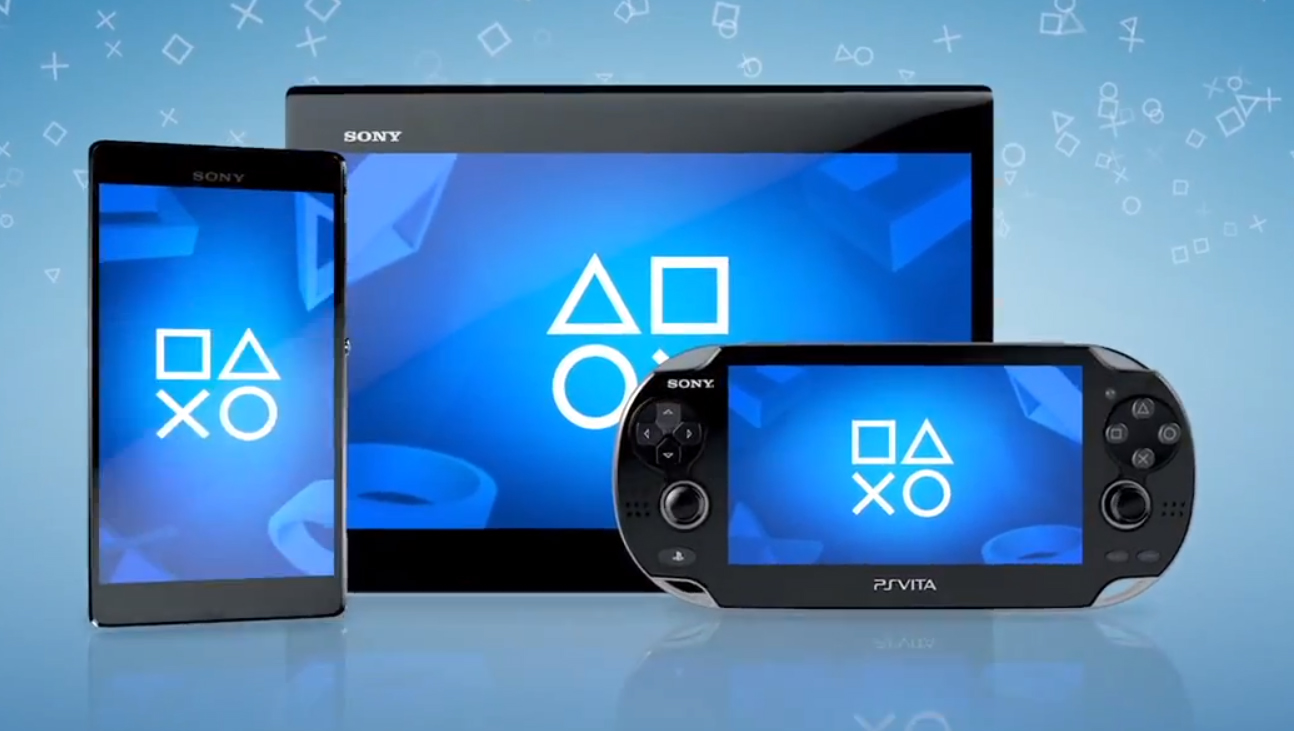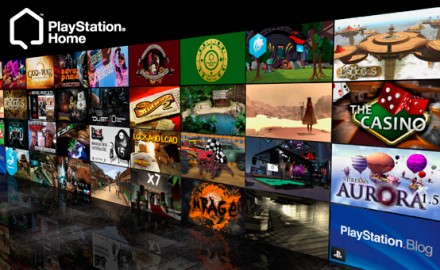By Meelad Sadat

Now in its seventh year, Digital Media Wire is preparing to host the 2013 DMW Games Conference in Los Angeles later this week. This year’s event has a line-up of more than 80 speakers, many of whom are focusing on opportunities in the digital and mobile game categories. The conference is scheduled for April 18-19 at the Hollywood Roosevelt Hotel, with [a]list daily readers eligible for a discount at registration.
To get insight into the event and its mobile game agenda, we talked with Ned Sherman, CEO and publisher of Digital Media Wire, and Chris Mahoney, one of the conference keynote speakers. Mahoney is director of emerging platforms at SCEA and responsible for PlayStation Home and PlayStation Mobile. His session “Twinkie vs. Steak: Bringing Meaningful Console Experiences to Mobile Platforms” is scheduled for this Friday.
[a]list: Along with mobile, let’s hear what else this year’s conference is putting front and center?
Sherman: Wow, there’s so much great content and speakers at this year’s event that it’s hard to point to one thing. One of the trends that interests me is the growth and opportunity for game-related content on video platforms. We have a panel on the topic with speakers from Alloy Digital/Smosh, YouTube, Twitch.TV, Sony Pictures Entertainment, Machinima, and Electronic Arts. I also like what is happening in the eSports space. As a long time fantasy football player, it kind of reminds me of the early days of fantasy sports leagues.
[a]list: What do each of you see as recent changes in the industry that have put us on a whole new path with where games are going?
Mahoney: The short answer is everything, right. I often say that if you were to create a formula for the game industry right now, and these are the different variables that are in there — you talk about the proliferation of new devices, there’s expansion to new consumer segments that five years ago didn’t even consider themselves gamers, the new content types, all of these kinds of things, all of the different competitors — if you really sort of put that into a multi-variable equation, and then put coefficients next to each one to sort of measure the change, the coefficient would be like 80 percent or higher that those dynamics are changing. I don’t think anybody honestly has one right answer as to where this thing is going. I love it when people say consoles are going to die. We’ve lived through innovation cycles before.
Sherman: Over the past ten years, video games have gone from being a sort of subculture phenomena to a mass market opportunity. According to the Entertainment Software Association, the average gamer today is 30 [years old], 47 percent are women, and 62 percent are adults, and a lot of this has to do with new technologies and market forces which have allowed developers to make games more accessible to a diverse audience. Virtually every screen we own today plays games, from the console to the phone to the TV to the tablet, and all generations male and female are playing. It’s fascinating to see how immersed games are in our society today.
 If only
If only
[a]list: Is it right for game companies to see the rise of mobile, tablet and multi-screen gaming as a threat, as Nintendo recently claimed?
Sherman: Disruption always has two faces — opportunity and threat — but a lot depends on where you sit. For traditional game publishers who have built their businesses on the packaged goods model, the evolution to a digital business will not be easy. It’s really a balancing act. How do you maintain profits from legacy business models while being competitive in new mobile and digital markets?
[a]list: Question for Chris — can we get a preview of your keynote
Mahoney: My goal is really to give sort of a broad look at the mobile industry, and specifically where are the fundamental forces that are driving it these days. What are the main things that are changing the mobile industry? And also specifically, what role do console companies have in that space. That’s our background here. We’re seeing a lot that’s going on in the existing mobile market that we think we can both participate in as well as contribute you.
There are thousands and thousands of mobile games out there, there are tons of choices, which is excellent. At the same time it also creates a problem for discoverability. We’re a company that has a long heritage of finding the best games in the industry. There’s a lot we can talk about how we better curate experiences and create better discoverability for games on mobile platforms as well as console.
We recently did a nationwide research study of all mobile users. We found some very, very interesting things, some of which would be common knowledge for people in the mobile industry, and a lot of which would be actually shocking. A lot of the articles and research point towards mobile growing exponentially, but we’re starting to see some small cracks in the foundation that are starting to indicate that consumers are becoming much more discerning about the kind of content they want to interact with.
Again, we think that as a console company, we’re known for quality, immersive games. A lot of mobile consumers are starting to ask for certain deeper experiences on their mobile phones and not just 50 throwaway experiences.
[a]list: Tell us about the research study.
Mahoney: It was a nationwide research of thousands of mobile gamers, so it wasn’t just console or PlayStation gamers but mobile gamers in the U.S. It really looked at all of their interests in terms of what do they like about mobile games, what they don’t like – social features of mobile games, the game play types, graphics, story lines. It really focused on every single piece of mobile games and asked consumers about them individually to figure out key things they both liked and wanted to see in the future.

[a]list: What is Sony’s strategy for mobile and tablet games
Mahoney: Our biggest thing is to focus on quality over quantity. There are platforms out there that have hundreds of thousands of games on them, and they’re a lot less interesting to us honestly. We would rather have a few thousand games and have really, really quality games. That’s more of what we’re reaching for. We’ve all had the experience where we’re like “you know I’m a gamer and I like strategy games or RPGs” and you go on mobile platforms and it takes you a very, very long time to find the newest and best games. That runs counter to how we see peoples’ mobile function patterns. Really, they want to go in and very quickly find the best games, get it, consume it, and often what they do after playing that game for a while is move on to the next one. That relevance and that quality, ease of use and discoverability is more what we’re focused on.
It’s a little bit of half science and half art. The science of it is having our 17 year heritage of building great games – we know what sells, we know what works. The art part of it is, honestly it’s one of the things I love about working here, we’re all gamers. We play a lot of games. I have 19 “Platinums” on PlayStation Network, I played over 200 hours of Skyrim alone, and I’m not unusual for PlayStation. There are a lot of those people around here. We use the science and data and knowledge to divine the best games that are coming on mobile platforms, but then on top of that we layer on our intuition for what we know intuitively as gamers are good games.
We’re not right all of the time, but we have a really excellent track record of being right most of the time. What we’ve done with independent games like Papo & Yo and Journey are probably the biggest hallmark of that, and all of the games that came out of thatgamecompany. We really work hard to find the independent and very intelligent developers and work with them to launch quality games on all PlayStation platforms. We’ve been doing a lot of game jams for PlayStation. We’ve been inviting developers to places like New York City, and we got like 30-40 developers together and had them hack on PlayStation mobile SDK and basically build games with us. We learned a lot. The game jams gave us a real high-touch feel for what mobile gamers are enjoying about the space right now, and also what developers are struggling with. And that’s for both on our technology side as well as our audience, they’re interested to hear about the marketing challenges that those companies are having, because they’re full of brilliant, creative ideas and sometimes it’s hard to get noticed with all of the games that are out there right now.
[a]list: Six years since launch, how would you define the evolution of PlayStation Home?

Mahoney: We just had a record year this year. We’re continuing to invest in it, and third parties are continuing to deliver a lot of great content. When I started here a few years ago we had 400 virtual items and now we have more than 20,000. That wouldn’t have happened unless there was a very positive ecosystem for ourselves and third parties. Honestly the vast majority of our content is third-party. It’s an exciting place for core gamers to hang out. That’s the funny thing, people think sometimes Home is a virtual world, maybe there’s more of a casual group inside there. But a lot of what we’ve found is just the core of PlayStation community is so passionate about games, when they’re done playing a game and they want to take a little break but they don’t want to turn off the PlayStation, they go into Home, hang out, talk with other gamers, play some games, buy some virtual items. That’s why our average session for what time inside Home is over 70 minutes, which is amazing when you think about it. That’s the average for the entire platform.
[a]list: Back to the conference. DMW Games is in its seventh year, nearly coinciding with the duration of this last console generation. How has the event agenda shifted to reflect changes in the industry during that time?
Sherman: Since our early days, we’ve been obsessed with the development of online or digital games across platforms and that is reflected in the issues, speakers and companies that make up our agenda. Our focus is on new business models and how the industry is evolving.
DMW Games is really about the people we bring together. We provide a platform and environment where the most senior people in the games and media industries can take their heads out of the nitty gritty for two days, step back, look at the industry as a whole and meet new and old friends alike. There’s a lot of learning that comes from listening and talking with others working in the industry and other entertainment/media sectors, and it never hurts to do it under palm trees by the pool at the Roosevelt.

